00:40
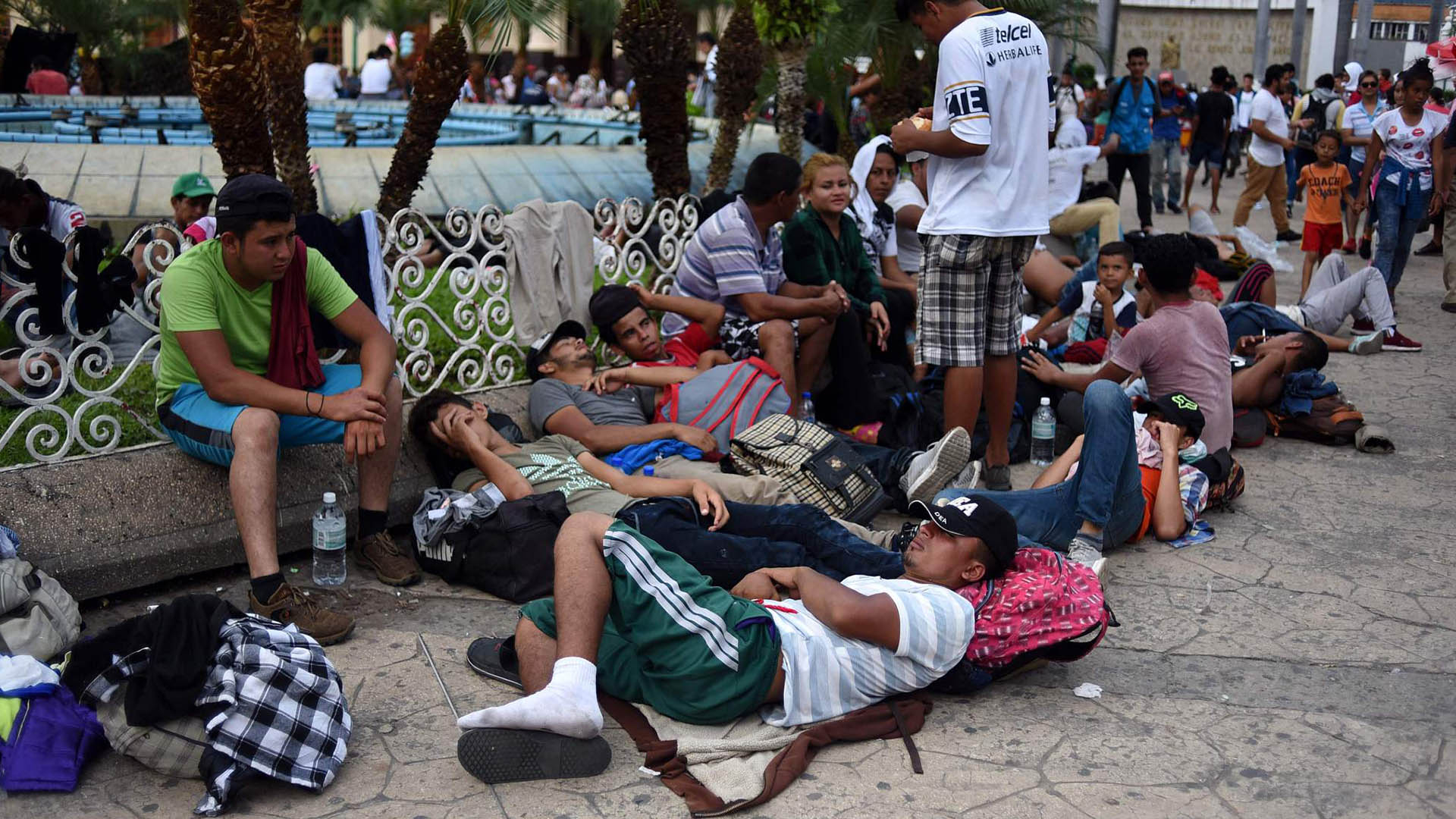
A US-bound caravan of thousands of mostly Honduran migrants whom President Donald Trump has declared unwelcome, began pouring into the Mexican border city of Tapachula on Sunday, setting up impromptu camps in public parks under heavy rain.
Many members of the caravan, exhausted from the hours-long trek on foot from the Guatemalan border, mostly ignored police offers to board buses heading to a migrant shelter because of suspicions they might be deported instead.
The migrants have defied threats by Trump that he will close the US-Mexico border if the caravan advances, as well as warnings from the Mexican government that they risk deportation if they cannot justify seeking asylum in Mexico.
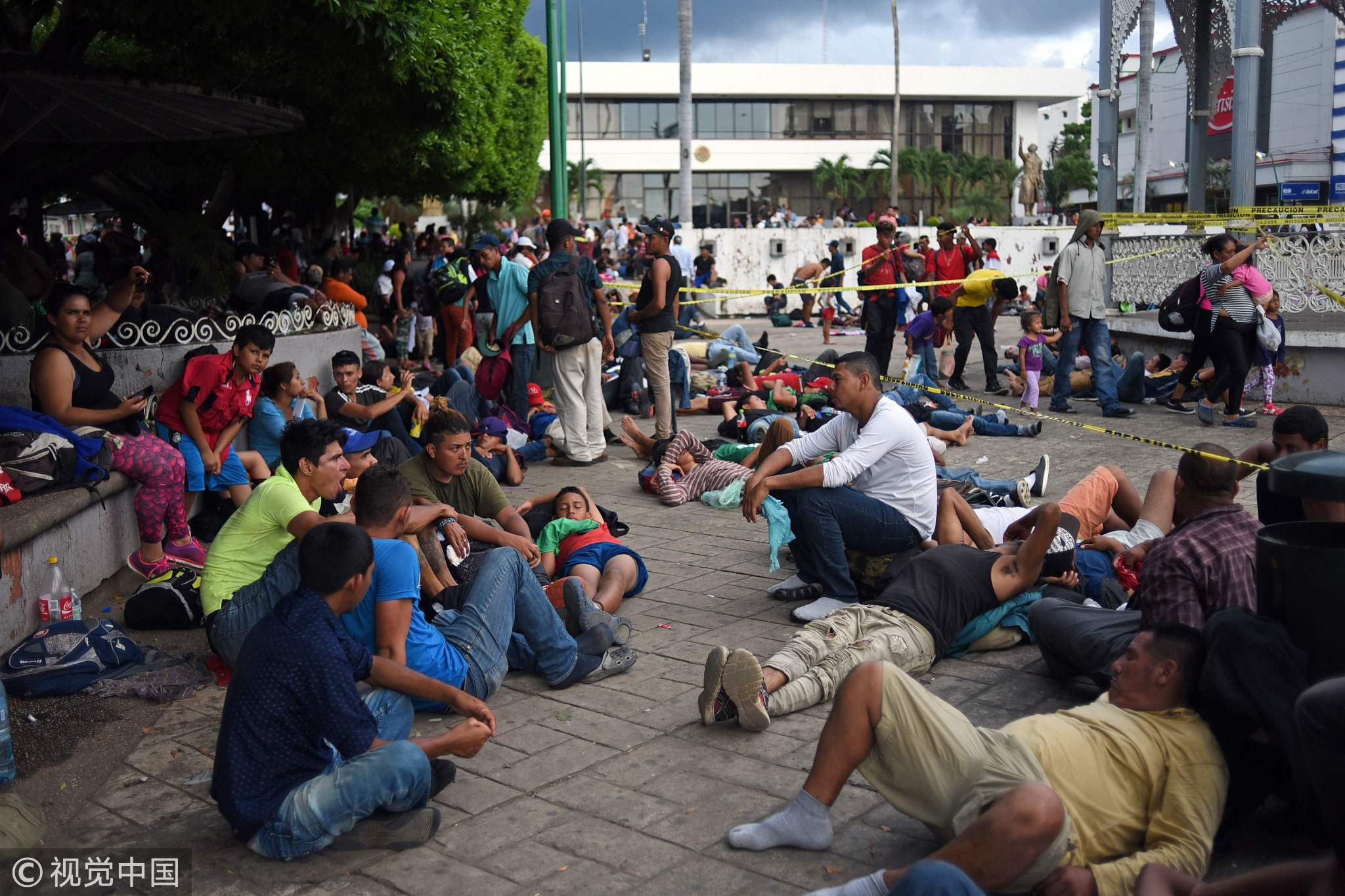
Honduran migrants take part in a caravan heading to the US, rest at the main square in Tapachula, Chiapas state, Mexico, October 21, 2018. /VCG Photo
Honduran migrants take part in a caravan heading to the US, rest at the main square in Tapachula, Chiapas state, Mexico, October 21, 2018. /VCG Photo
Police in riot gear shadowed the caravan's arrival along a southern highway but did not impede their journey.
Among the crowds hiking into the center of the city was Roger Pineda, a 16-year-old Honduran.
“I just want to find some food and a place to sleep,” he said, explaining he joined the caravan last week with five family members and a group of friends from the violent city of San Pedro Sula.
“I hope Trump allows us to make it to the other side,” he said.
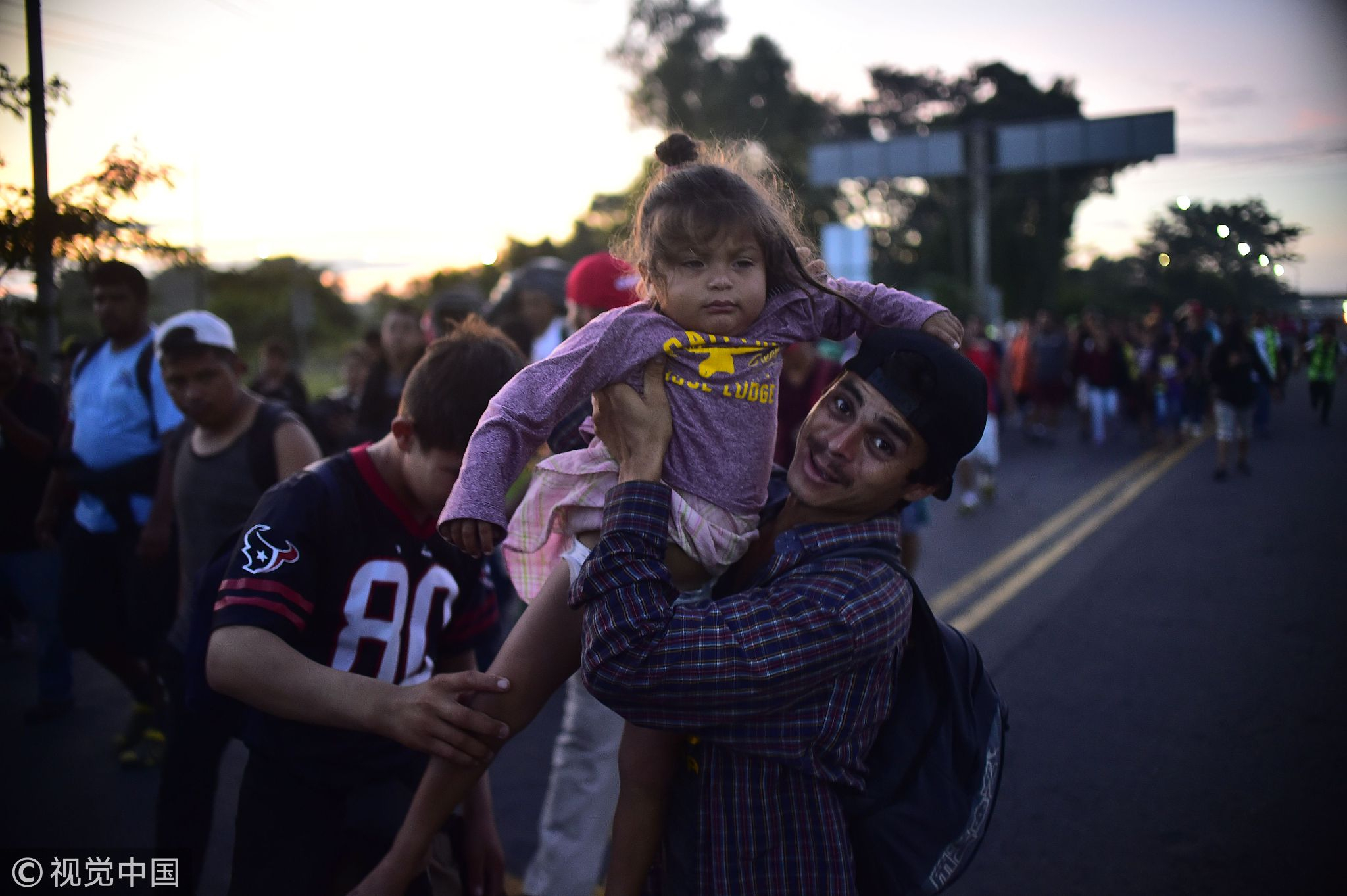
A Honduran migrant holds up a baby as they take part in a caravan heading to the US on the road linking Ciudad Hidalgo and Tapachula, Chiapas state, Mexico, October 21, 2018. /VCG Photo
A Honduran migrant holds up a baby as they take part in a caravan heading to the US on the road linking Ciudad Hidalgo and Tapachula, Chiapas state, Mexico, October 21, 2018. /VCG Photo
In Guatemala, local media reported that around 1,000 migrants were traveling north en route to the Mexican border.
Earlier on Sunday, a column of people marched under a burning sun as a military helicopter circled low overhead.
Most said they felt safer advancing in a large group.
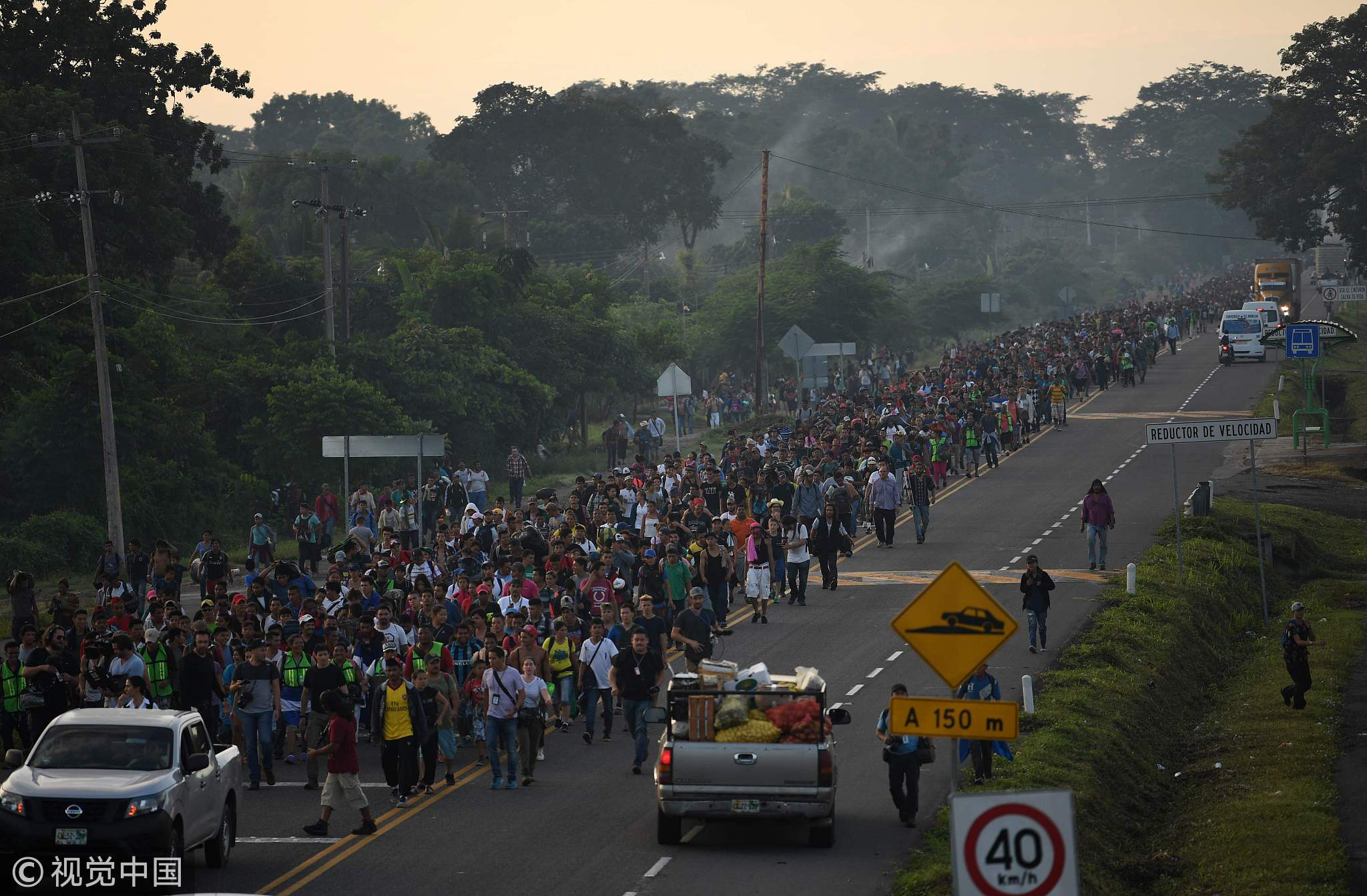
Honduran migrants take part in a caravan heading to the US on the road linking Ciudad Hidalgo and Tapachula, Chiapas state, Mexico, October 21, 2018. /VCG Photo
Honduran migrants take part in a caravan heading to the US on the road linking Ciudad Hidalgo and Tapachula, Chiapas state, Mexico, October 21, 2018. /VCG Photo
Mexican President-elect Andres Manuel Lopez Obrador adopted a sympathetic tone toward the caravan on Sunday, promising to provide people with work permits in a speech to supporters in Tuxtla-Gutierrez, about 180 miles (290 km) north of Tapachula.
“I want to tell them they can count on us,” said Lopez Obrador, reiterating that he is seeking Trump's support to help fund a development plan that could alleviate poverty in Central America and southern Mexico.
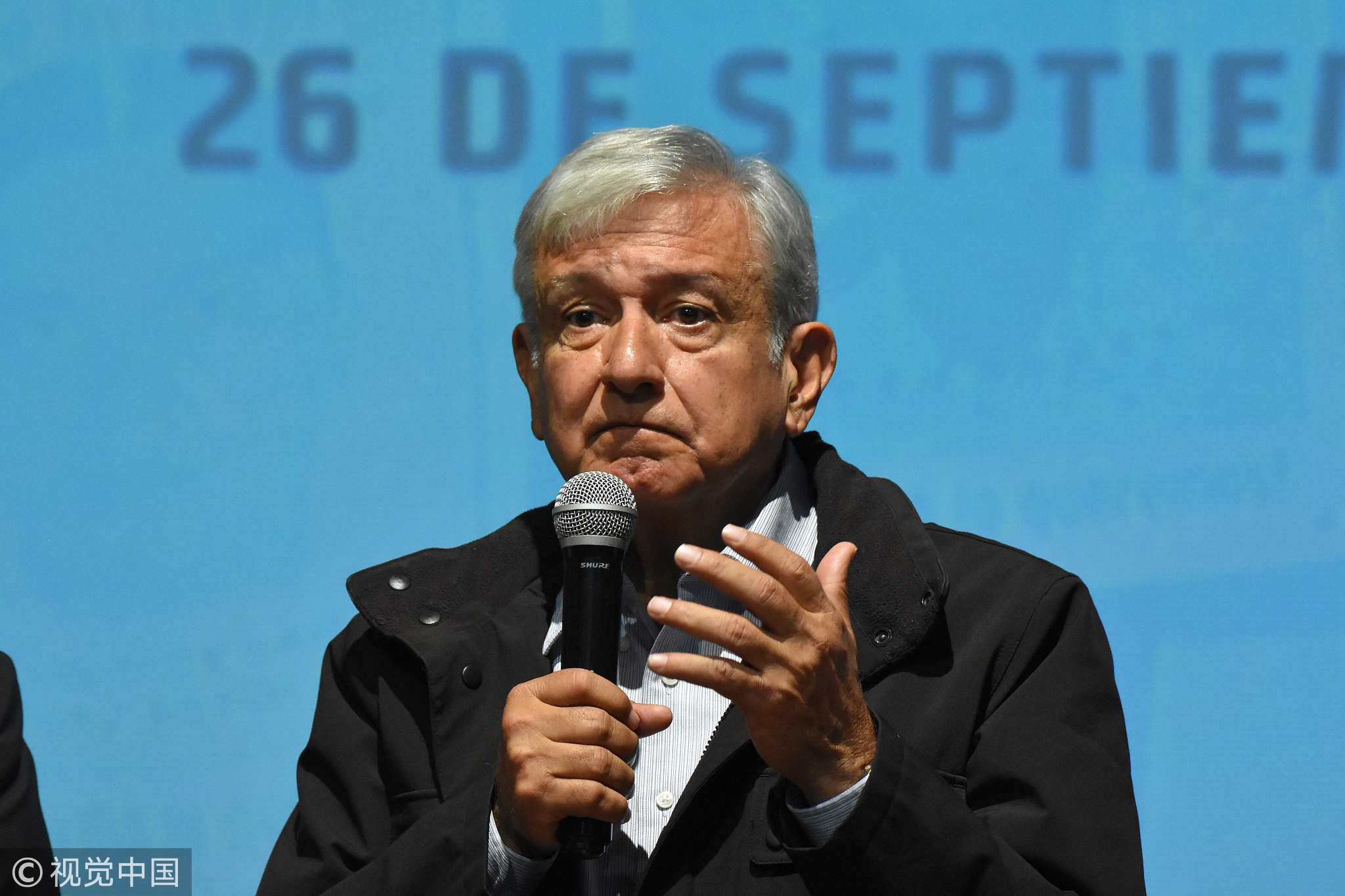
President of Mexico Andres Manuel Lopez Obrador speaks during a press conference after a meeting with relatives of missing students from Ayotzinapa at the Memoria y Tolerancia Museum on September 26, 2018, in Mexico City, Mexico. /VCG Photo
President of Mexico Andres Manuel Lopez Obrador speaks during a press conference after a meeting with relatives of missing students from Ayotzinapa at the Memoria y Tolerancia Museum on September 26, 2018, in Mexico City, Mexico. /VCG Photo
Since the convoy formed last weekend, Trump has threatened to halt aid to Honduras and Guatemala, and potentially close the US border with Mexico with the help of the military if the migrants' march is not stopped.
Mexico's government has said throughout the past week that it would register the migrants and process requests for asylum. Those attempting to skip the process would face deportation, but the size of the caravan will test Mexico, which has sought help from the United Nations to manage the issue.
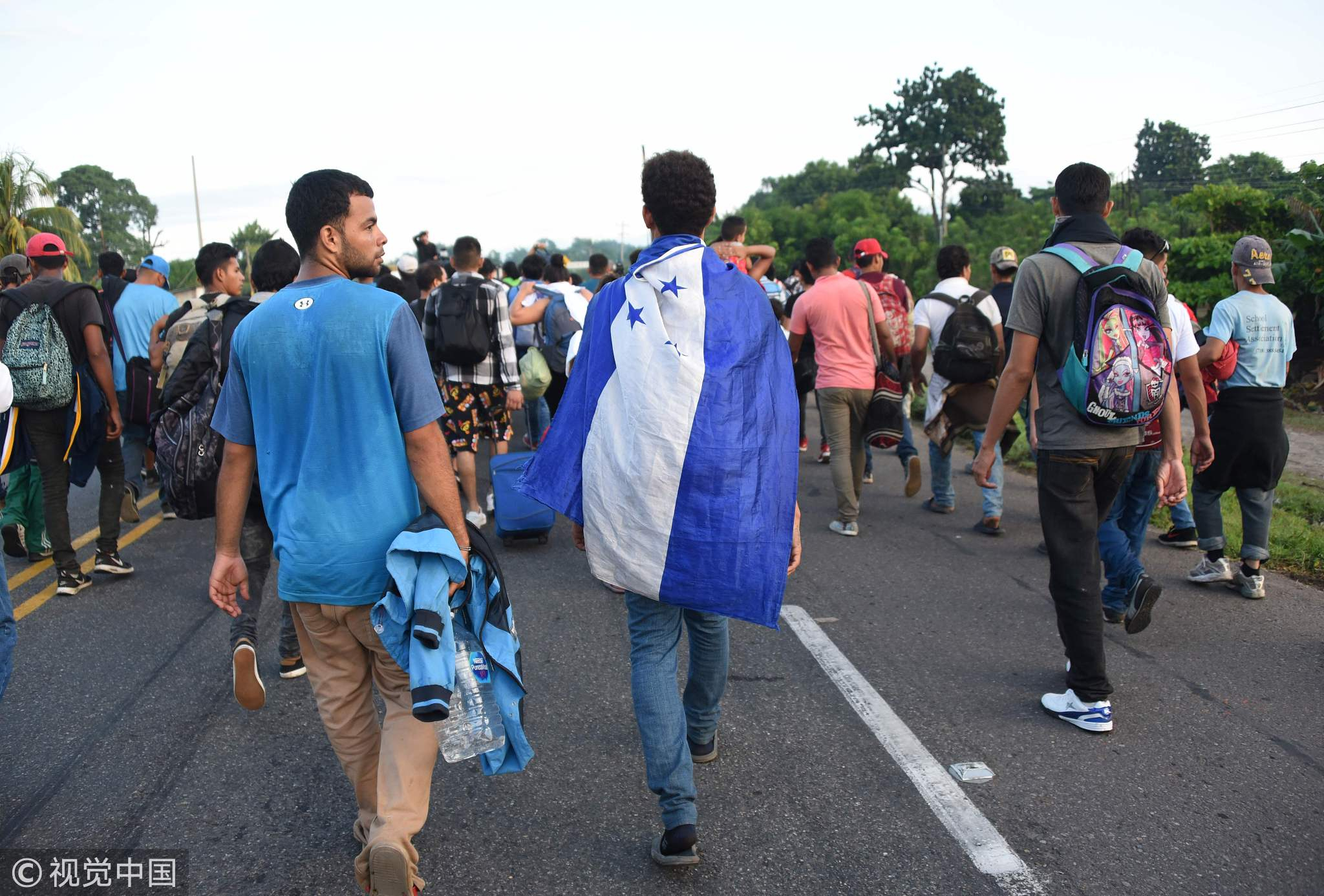
Honduran migrants take part in a caravan heading to the US, on the road linking Ciudad Hidalgo and Tapachula, Chiapas state, Mexico, October 21, 2018. /VCG Photo
Honduran migrants take part in a caravan heading to the US, on the road linking Ciudad Hidalgo and Tapachula, Chiapas state, Mexico, October 21, 2018. /VCG Photo
The Honduran government has blamed the political opposition back home for encouraging the exodus of migrants.
On Saturday, Mexican immigration authorities said they had only allowed some 640 migrants through the official border crossing on a bridge spanning the Suchiate River.
Source(s): Reuters







